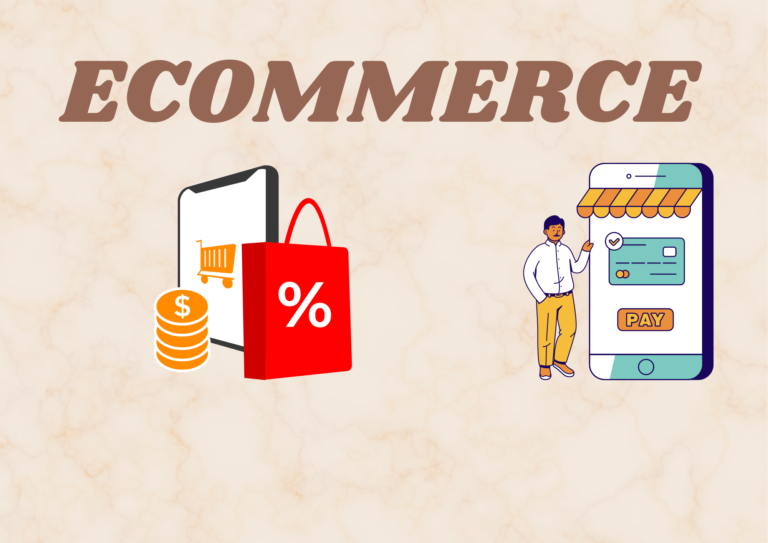Ecommerce tools

Ecommerce tools has become a way of life, offering limitless possibilities for businesses globally. However, without the right resources, you may not be tapping into the full potential of your online business.
In this article, we’ll break down some of the best ecommerce tools to enable you to outperform your competitors and make informed decisions regarding your marketing budget.
What are Ecommerce tools ?

Ecommerce tools are pieces of software like apps, platforms, and plug-ins that help business owners manage their online stores. While there are many different kinds of ecommerce tools, they all share a common purpose: to streamline, organize, and automate the processes of running and growing an ecommerce store. Examples include drag-and-drop website builders, inventory management software, and analytics tools, among others.
Why are ecommerce tools important?

Building software like mobile apps and shopping carts from scratch can be time consuming and expensive. But with a robust set of ecommerce tools, you can create and manage your online store efficiently, keep costs down, and earn more money.
With a good ecommerce toolkit, you can:
- Reach more customers online
- Make an exciting shopping experience
- Collect first-hand data for your campaigns
- Integrate all your tools
- Help your store sell 24/7
these tools are literally the building blocks of any online store. If you’re running an online store, there are a lot of moving parts to keep track of: customer support, marketing, logistics.
- Some of the best tools an ecommerce business owner can use are those that help organize the day-to-day business operations of the store, like making sure internal business operations are taken care of alongside organizational needs.
Some Research ecommerce Tools:

For ecommerce businesses, building and selecting quality research tools can help you gain a competitive advantage. If you’re unfamiliar with the techniques and capabilities of your competitors, you’re not likely to perform well.
When deciding on an ecommerce tool, consider the following:
1. Ecommerce platforms
The first step to building an online store is choosing the right ecommerce platform. An ecommerce platform essentially is the software that an ecommerce store uses to take care of core needs, from product pages to order fulfillment. Your platform affects your customers’’ shopping experience. It needs to be user friendly, fast, and reliable to ensure a smooth shopping experience, which can directly influence customer satisfaction and return rates.
Shopify ecommerce tools

Shopify is an all-in-one ecommerce platform that helps online businesses get up and running. Offerings include a robust set of ecommerce tools like a website builder with paid and free themes, built-in marketing tools to help build, execute, and analyze digital marketing campaigns, a shopping cart with 100 payment gateways, and multichannel selling.
2. Content creation ecommerce tools
Creating content for an ecommerce website can be a powerful way to increase visibility. It’s also fairly straightforward, thanks to ecommerce tools like the following:
Canva

Canva is an ecommerce tool that helps teams—even those with little to no experience—create aesthetically pleasing designs. Whether designing a brand identity or just creating supportive imagery for your online store, Canva’s drag-and-drop tools make it easy to create and share well-designed assets.
WordPress

Not all ecommerce websites will need a dedicated blog. But for those that do, a content management system like WordPress may be helpful. WordPress can help in developing a blogging strategy to build and nurture customer relationships, establish a brand, and generate recurring traffic.
3. Communication and internal organization
Ecommerce tools can also be beneficial for the inner workings of an online business. This could mean anything from having a dedicated space to communicate with employees, to a platform for streamlining project management tasks.
Slack

A messaging platform designed with workers in mind, Slack lets you and your employees chat with each other in real time. This can be a productivity booster for remote workers, especially because Slack enables teams to get organized, manage each other, and communicate about daily to-do’s.
Coda

Coda is a robust productivity tool that can help manage different aspects of your business—think marketing calendars and tracking docs. It’s both highly editable and customizable, making it a great tool for organizing projects internally. And as an added bonus, Coda offers a Shopify pack that integrates with your Shopify store.
Monday.com

Monday.com is a flexible and customizable project management tool that automates workflows and centralizes work processes in one place. Online stores can utilize Monday.com to stay on top of inventory management, keep track of important metrics, and more.
4. Sales and logistics ecommerce tools
Sales and logistics are a significant part of running an online business. While some ecommerce platforms offer these tools as part of their overall services, there are also a few prominent stand-alone options.
Shipwire

Shipwire is a global fulfillment platform that fulfills orders for direct-to-consumer, retail, and dropship channels. By integrating with your existing shopping cart and marketplace, Shipwire provides logistical support and enables both national and international shipping.
5. Marketing ecommerce tools
There are many different marketing tools, from content marketing to paid ads. Among the options are:
Mailchimp

Email newsletters are a powerful ecommerce tool: They provide a direct channel to customers and offer a dedicated space to share updates, promotions, and other information.
An email platform like Mailchimp streamlines the marketing process by helping you build, send, and track email marketing campaigns. An added bonus: Mailchimp integrates with Shopify, meaning it syncs your Shopify data—including customer, product, and purchase data—to Mailchimp
Buffer

Establishing a consistent social media presence is an easy way to increase your online store’s visibility. Buffer is an easy-to-use social media management platform that makes it simple, for online stores to schedule social media content—via Facebook, X, Instagram, and LinkedIn—in advance.
6. Analytics
Ecommerce analytics measure user behavior, performance trends, and return on investment (ROI). With the right tool, it’s easier to make informed decisions that potentially increase sales and reduce costs.
Google Analytics

Google Analytics is one of the most popular data analytics tools for eCommerce. It offers a wide variety of actionable insights for free, providing a great starting point for any eCommerce platform.
It also has a feature called Google Analytics Enhanced Ecommerce that gives eCommerce business owners advanced analytics. This allows a marketing team to easily track traffic at each step of the sales funnel.
Optimizely

Want to create a more personalized experience for shopping success? Optimizely’s features are a good starting point. This eCommerce analytics software focuses on A/B testing and optimization to create a more authentic shopping experience. It’s like hiring an A/B testing specialist and an advanced platform all in one.
Optimizely’s Web Experimentation tool offers a no-code editor that helps you set up A/B tests to improve your site content. Optimizely’s Full Stack tool enables you to roll out new features faster. Collect customer data to know which variations are performing best. Additionally, experiment with chatbots and checkout flows to reduce your cart abandonment rate.
7. Customer service
An ecommerce tool that helps support online shoppers during their customer journey is crucial. Ideally, you’ll want a customer support platform that both helps retain repeat customers and attracts new ones.
Acquire

Acquire’s platform helps online stores provide high quality customer support, streamlining workflows and customer information for customer service agents. Think of it as a unified experience: Customer service representatives can see queries across all digital channels in one place and resolve issues more efficiently.



